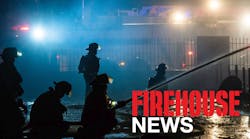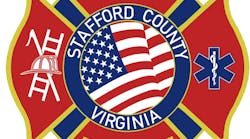They have been so intense over the years that some have referred to them as "the sprinkler wars." Well-meaning and committed members of the fire service, advocacy groups, fire sprinkler industry leaders, code-development professionals and others on the side of enhanced fire safety versus the homebuilding industry and its cohorts on the side ofâ?¦well, I guess that's part of the mystery â?? it's never been clear what they're on the side of other than simply opposing any requirement to install fire sprinkler systems in new townhouses and new one- and two-family residences.
The fire safety position focuses on the obvious life-saving aspects of having fire sprinklers in residences, while those on the dark side do everything in their power to cloud the issues and misinform the public and elected officials. They continue to claim that these sprinklers are too costly, ugly, prone to malfunction, etc., and they spend a lot of money keeping the myths alive. The conflict has gone on for years, and it has recently escalated to a new level of absurdity.
The International Code Council's (ICC) International Residential Code (IRC) now calls for residential fire sprinklers in all new townhouses and one- and two-family residences built after Jan. 1, 2011. The inclusion of this requirement in the IRC was a major accomplishment for those on the side of enhanced fire safety, and was taken as a major defeat by those on the side of "whatever it is they're on the side of." The adoption of this requirement will result in fire sprinkler installations in new homes across the nation.
Over a period of years, this will significantly change the fire safety risk profile in many parts of the country. People will simply be safer from the harmful effects of fires in their homes. However, the homebuilders are not inclined to allow the new requirement in the IRC to be adopted. The homebuilders have started initiatives to prevent local adoption of national codes that require residential fire sprinklers by introducing legislation at the state level that would block them.
The fire service and other pro-fire safety groups are already fighting these legislative proposals in North Dakota and Arizona, and similar proposals are expected to rear their ugly heads in other states as well. In states such as Minnesota and Maryland, the homebuilders are initiating different tactics to achieve a similar end â?? to block the adoption of the new code requirement. As a pretext, the homebuilders are using the downturn in the economy as the reason lawmakers should not allow the adoption of residential fire sprinkler requirements at the state and local levels.
Yet, while the homebuilders profess to being so concerned about the impact of adding the cost of a fire sprinkler system to a mortgage, they don't hesitate to use every sales technique available to them to coax homebuyers to upgrade their carpeting, tile, countertops, window coverings, plumbing and light fixtures (and everything else in the total package that's upgradeable) and add those costs to the house payment, although not one of these added or upgraded features would save lives.
This protracted conflict with the homebuilders has gone beyond any logical discussion about the pros and cons of residential fire sprinklers. Why the homebuilders ignore the fact that most fire deaths occur in homes and that fire sprinklers can greatly reduce the number of fire deaths is beyond reason. One can't help but wonder if the homebuilding industry will ever accept that the sprinkler wars should end; after all, the requirement is now in the IRC. New homes will be required to be built with fire sprinkler systems, and this will bring a much higher degree of built-in fire protection in these structures in the future, resulting in lives and property being saved.
The National Fallen Firefighters Foundation's (NFFF) "16 Life Safety Initiatives" directly address the importance of residential fire sprinklers as an intervention strategy to reduce firefighter line-of-duty-deaths in the future. Fire sprinklers have proven to be extremely effective in minimizing the potential of civilian fire deaths, to say nothing of the savings in property loss from residential fires each year. A working smoke alarm, coupled with a residential fire sprinkler system, provides a high level of protection. With 80% of civilian fire deaths and many firefighter line-of-duty deaths occurring in unsprinklered residences each year, reasonable people can only conclude that the adoption of these residential fire sprinkler requirements represents wise public policy and will significantly reduce fire deaths and injuries in the long term.
We all wish that differences could be resolved and the polarizing positions taken by the homebuilders could stop, but it's more probable that their opposition will not go away anytime soon. Therefore, it's incumbent that those on the side of life safety remain vigilant and committed to the cause. We owe that to the public we serve and to our firefighters as well.
DENNIS COMPTON, a Firehouse® contributing editor, is a well-known speaker and the author of several books, including the When in Doubt, Lead series. He is also co-editor of the current edition of the ICMA textbook Managing Fire and Rescue Services. Compton was the fire chief in Mesa, AZ, for five years and assistant fire chief in Phoenix, AZ, where he served for 27 years. Compton is the past chair of the Executive Board of the International Fire Service Training Association (IFSTA) and past chair of the Congressional Fire Services Institute's National Advisory Committee. He is also chairman of the National Fallen Firefighters Foundation Board of Directors and the chairman of the Home Safety Council Board of Directors.





